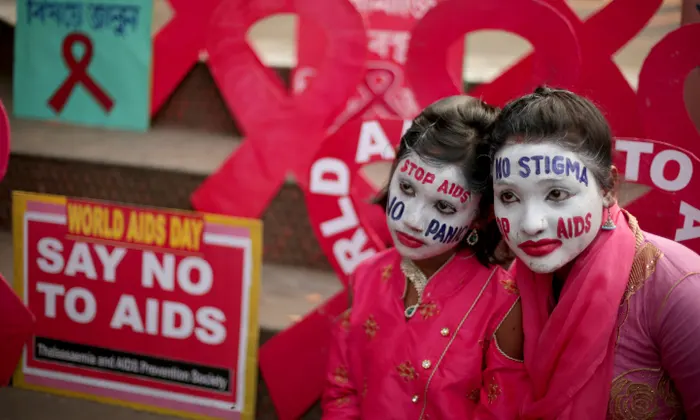Tanzania has made significant progress in the fight against HIV/AIDS in recent years. In 2022, the country achieved the “95-95-95” targets, meaning that 95% of people living with HIV know their status, 95% of people who know their status are on treatment, and 95% of people on treatment have a suppressed viral load, this was addressed by the Minister of Health, Ms. Ummy Mwalimu and the new report from United Nations. This is a significant milestone, putting Tanzania on track to achieve zero new HIV infections by 2030.
Tanzania’s Progress in the Fight Against HIV/AIDS
Under this situation, significant factors have contributed to Tanzania’s success in the fight against HIV/AIDS, including solid political leadership, increased funding for the HIV/AIDS response, and access to high-quality HIV prevention and treatment services.
The government of Tanzania has been committed to the fight against HIV/AIDS since the early days of the epidemic. This commitment has been demonstrated by the government’s investment in HIV prevention and treatment programs and its willingness to address the social and structural factors contributing to HIV transmission.
Another reasonable factor is how this international community has played a significant role in Tanzania’s progress against HIV/AIDS. Through programs like the Global Fund and PEPFAR, the international community has provided Tanzania with billions of dollars in funding for HIV prevention, treatment, and care in a different zone in Tanzania, starting from the grassroots level up to the national level
Access to high-quality HIV prevention and treatment services is also an example that made the government expand access to high-quality HIV prevention and treatment services. Today, people living with HIV in Tanzania can access free antiretroviral therapy (ART) and receive counseling and support services.
The Opportunities for Tanzania to Achieve Zero New Infections by 2030
In my opinion, Tanzania to reach a goal of zero new infections by 2030 is possible through various mitigation being implemented for citizens.
Continued Investment in HIV Prevention and Treatment Programs
Nevertheless, Tanzania has made great strides in expanding access to HIV prevention and treatment services. However, some populations, such as young people, women, and people who inject drugs, are still not being reached. Continued investment in these programs is essential to go zero new infections.
Addressing HIV Stigma and Discrimination
It is well known that HIV stigma and discrimination remain a problem in Tanzania. This can prevent people from getting tested for HIV and make it difficult for people with HIV to access treatment and care. Addressing HIV stigma and discrimination is essential to creating an environment where everyone can get the HIV prevention and treatment services they need.
Innovative Approaches to HIV Prevention
Through innovative approaches to HIV prevention that could be implemented in Tanzania. These include pre-exposure prophylaxis (PrEP), which is a medication that can prevent HIV infection, and male circumcision, which is highly effective in reducing the risk of HIV transmission and also the government can continue providing education on ( PrEP) because the majority of people don’t know about it and how it works.
The Role of Prevention, Treatment, and Care in Achieving Zero New Infections
The Power of Prevention – Prevention is pivotal in achieving the ambitious goal of zero new HIV infections. The situation shows that comprehensive education and awareness campaigns effectively disseminate critical information about HIV transmission and prevention methods. Promoting safe sexual practices, encouraging condom usage, and implementing pre-exposure prophylaxis (PrEP) for high-risk individuals are proven strategies to curb new infections. Investing in prevention programs and targeting vulnerable populations can create a robust defense against HIV transmission and significantly reduce the number of new cases.
Timely and accessible treatment for people living with HIV is equally indispensable in the journey towards zero new infections. Research indicates that antiretroviral therapy (ART) not only improves the health and longevity of individuals living with HIV but also dramatically reduces the likelihood of onward transmission. By ensuring all those diagnosed with HIV have access to treatment, we not only improve the lives of those affected but also break the chain of information. Expanding treatment facilities, providing ongoing support, and addressing barriers to adherence are crucial steps in achieving the zero-infections go
Also, the role of care cannot be overlooked in the endeavor to reach zero new HIV infections. Evidence demonstrates that stigma and discrimination pose significant barriers to HIV testing and treatment. A compassionate and supportive healthcare environment is essential in encouraging individuals to seek testing, disclose their status, and adhere to treatment.
The Challenges in Achieving Zero New Infections by 2030
One of the biggest challenges is HIV stigma and discrimination. HIV stigma can prevent people from getting tested for HIV and make it difficult for people with HIV to access treatment and care. Tanzania has a long history of HIV stigma, and it will take time and effort to change how people think about HIV.
Another challenge is that the HIV epidemic in Tanzania is concentrated in specific populations, such as young people, women, and people who inject drugs. These populations must be targeted with particular HIV prevention and treatment interventions to achieve zero new infections.
Main, Tanzania faces financial challenges in the fight against HIV/AIDS. The country’s economy is growing, but it is still one of the poorest countries in the world. This means that Tanzania needs to find ways to raise more money to fund HIV prevention, treatment, and care programs.
Despite these challenges, Tanzania is well-positioned to achieve zero new HIV infections by 2030. The country has the political will, technical expertise, and the international community’s support. With continued commitment and effort, Tanzania can be a model for other countries in the fight against HIV/AIDS.
Read more Health articles here.

